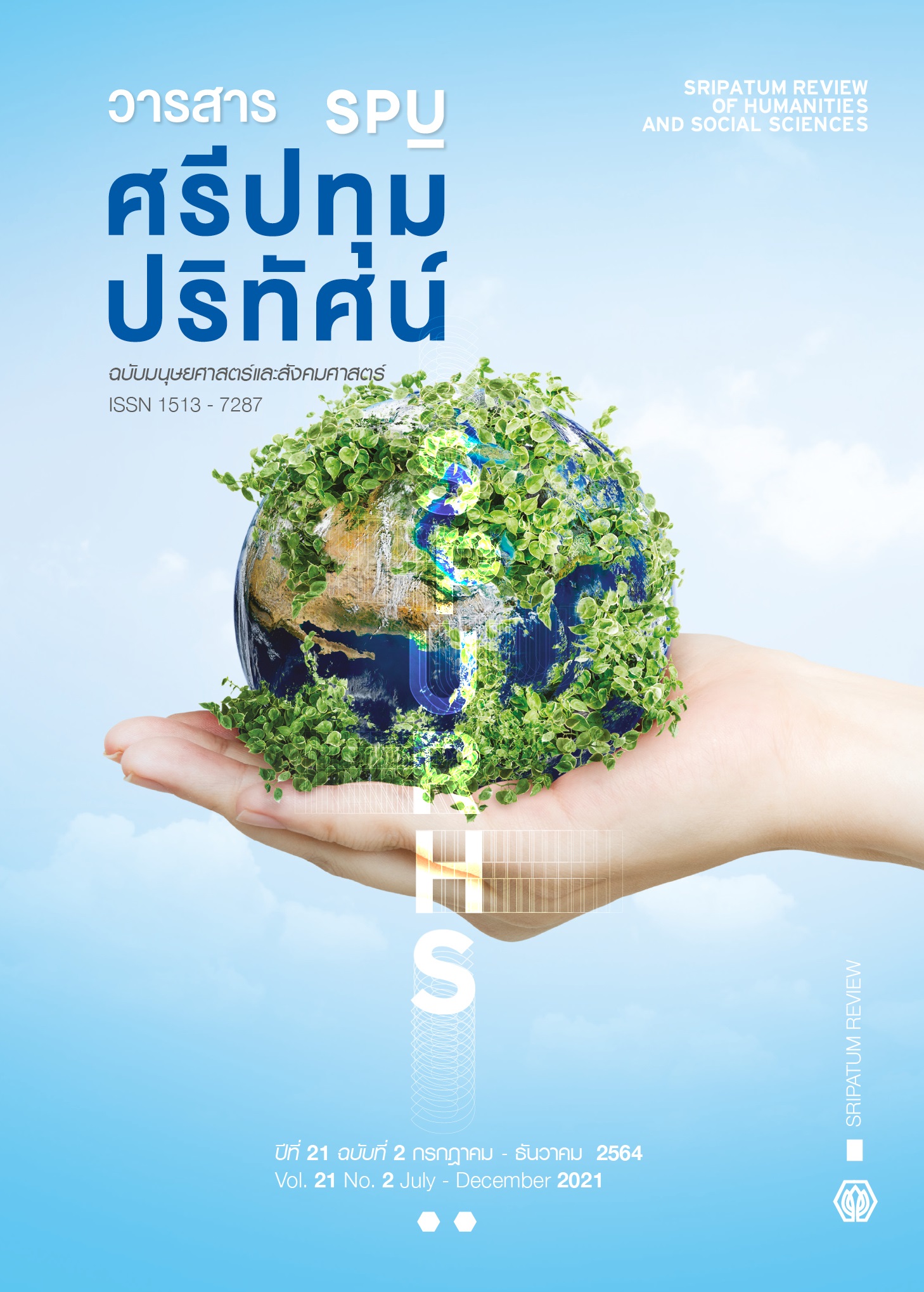Social Capital and Cultural Capital of Akha Ethnic Group to Formulate the Strategies for Promoting Cultural Tourism
Main Article Content
Abstract
The objectives of this article were to study the social and cultural capital of Akha ethnic group, and to formulate the strategies for promoting Akha's cultural tourism. This study was qualitative research. The research data were collected via in-depth interviews of 27 key-informants and were analyzed with content analysis. The results revealed that the social capital of Akha ethnic group comprised human capital, institution capital, and local wisdom capital. As for their human capital, they had kinship relationships, and had people who were the core of living. For their institution capital, they had the strong family institution, the village as the governing institution, and animism as the religious institution. For their local wisdom capital, they had community local wisdom persons to impart the body of knowledge. On the other hand, the cultural capital of Akha ethnic group comprised the tangible cultural capital and intangible cultural capital. Their tangible cultural capital included their house building styles, their costumes, artifacts or statues, community-ground, and swings. Their intangible cultural capital included agricultural rituals, beliefs in spirits, traditions, plays, and musical instruments. Social capital and cultural capital of the Akha ethnic group could be used to formulate the strategies for promoting cultural tourism such as tourism potential development strategies, preservation and participation which would create benefits from sustainable tourism for both the Akha ethnic group as the host, tourists, and other stakeholders.
Article Details
1. กองบรรณาธิการสงวนสิทธิ์ในการพิจารณาและตัดสินการตีพิมพ์บทความในวารสาร
2. บทความทุกเรื่องจะได้รับการตรวจสอบทางวิชาการโดยผู้ทรงคุณวุฒิ แต่ข้อความและเนื้อหาในบทความที่ตีพิมพ์เป็นความรับผิดชอบของผู้เขียนแต่เพียงผู้เดียว มิใช่ความคิดเห็นและความรับผิดชอบของมหาวิทยาลัยศรีปทุม
3. การคัดลอกอ้างอิงต้องดำเนินการตามการปฏิบัติในหมู่นักวิชาการโดยทั่วไป และสอดคล้องกับกฎหมายที่เกี่ยวข้อง
References
Dechachai, R. (2014). Impact of Community Based Tourism Management on Akha Ethnic Communities, Chiang Rai Province. Chiang Mai: Maejo University. (in Thai)
Du Cros, H. and McKercher, B. (2020). Cultural tourism. New York: Routledge.
Hyyppä, M. T. (2010). Healthy ties: Social capital, population health and survival. Dordrecht,
Netherlands: Springer.
Klangsombat, N. (2014). A Model Development for Cultural Tourism with Community Participation, Udonthani Province. Thesis of the Doctor of Philosophy Program in Sports Science. Bangkok: Chulalongkorn University. (in Thai)
Lee, T. H., and Jan, F. H. (2019). Can community-based tourism contribute to sustainable development? Evidence from residents’ perceptions of the sustainability. Tourism Management, 70, 368-380.
Sitthichodok, K. (2013). Akha, Rite, Faith and Beauty. Chiangmai: The Thailand Research Fund. (in Thai)
Sornwichai, J. and Unapohm, P. (2013). Intangible Cultural Heritage Policy, A Comparative Study of Thailand and Lao. CITU Review, 10, 1-3. (in Thai)
Suriyawong, B. and Sriyabhaya, W. (2019). Cultural Identity in Story Telling of Akha Ethnic in Chiang Rai Province. Journal of Humanities & Social Sciences (JHUSOC), 17(3), 99-117. (in Thai)
Taecharungroj, V., and Tansitpong, P. (2017). Attractions, attitude, and activities: tourism attributes that drive destination loyalty for international tourists visiting Thailand. International Journal of Tourism Policy, 7(2), 129-150.
Theerangguro, P., Anektecavaro, V., Ditamathaso, K., and Budsita, D. (2017). The Development of Cultural Tourist Attractions of Border Communities in Chiang Rai Province. Journal of MCU Social Development (JMSD), 2(2), 88-99. (in Thai)
Thompson, M. (2018). Social capital, innovation and economic growth. Journal of Behavioral and Experimental Economics, 73, 46-52.
Throsby, D. (2010). The economics of cultural policy. Cambridge, UK: Cambridge University Press.
Yanes, A., Zielinski, S., Diaz Cano, M., and Kim, S. I. (2019). Community-based tourism in developing countries: A framework for policy evaluation. Sustainability, 11(9), 2506.


